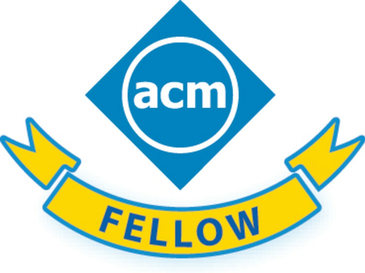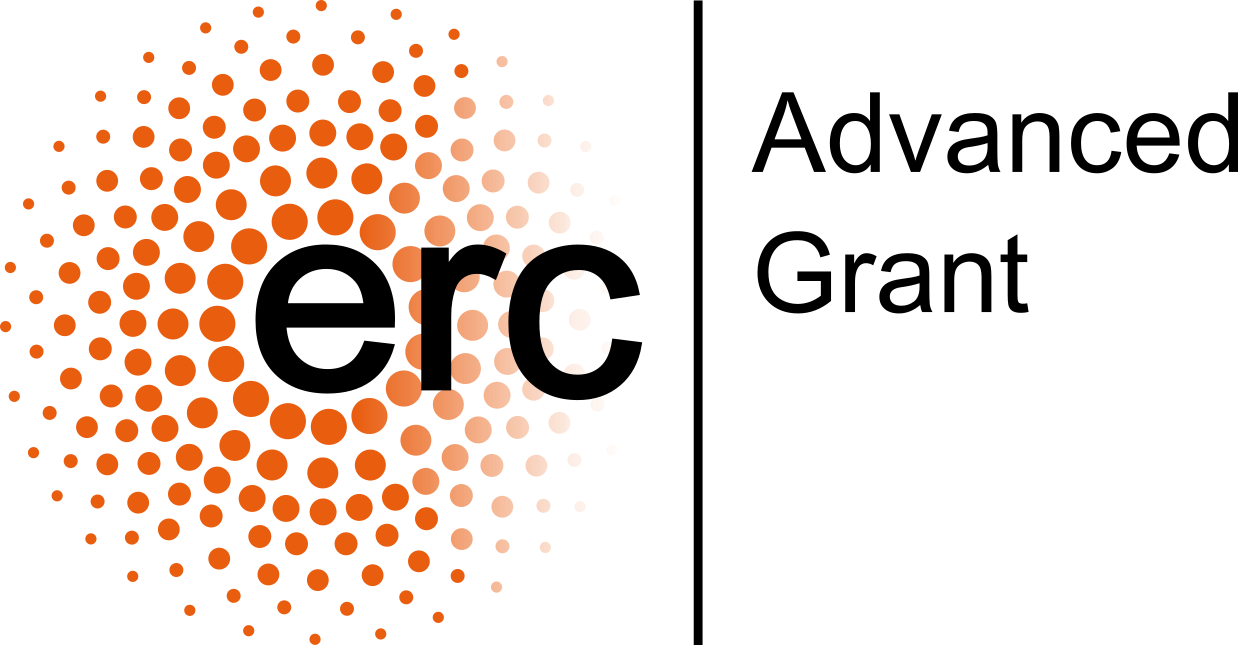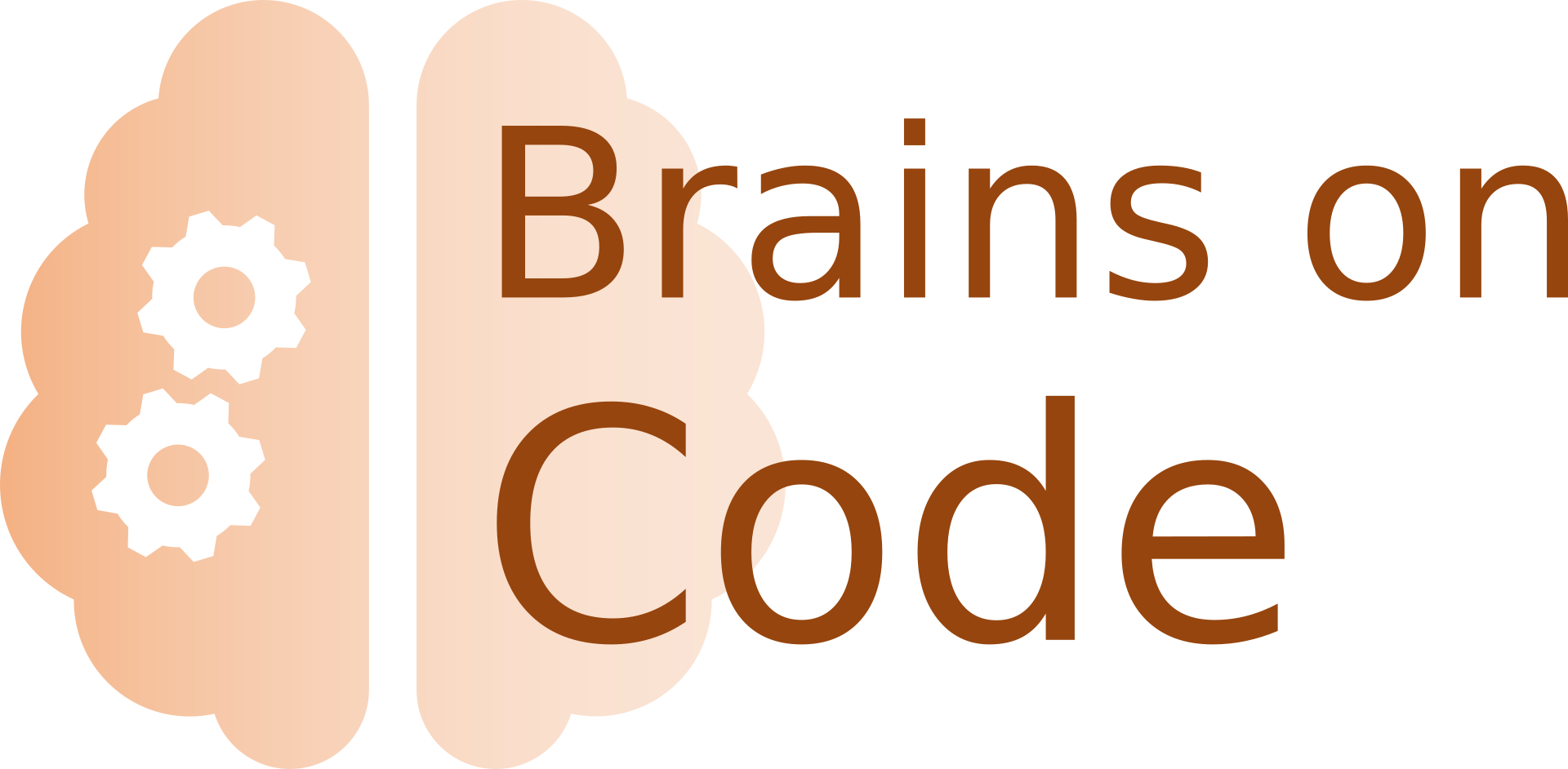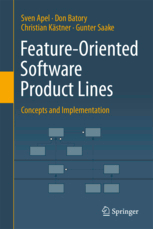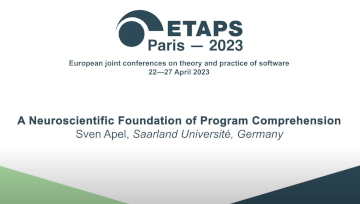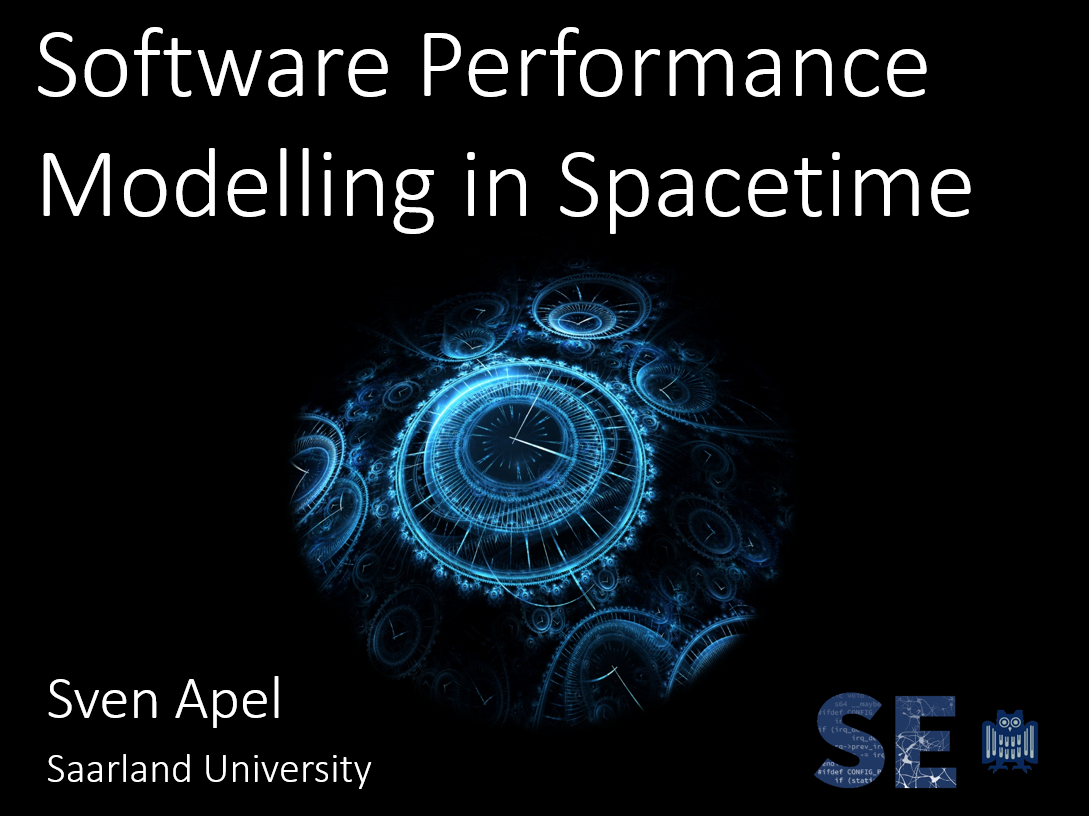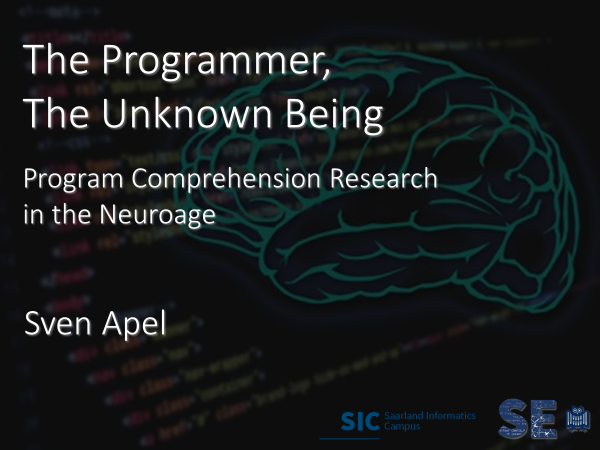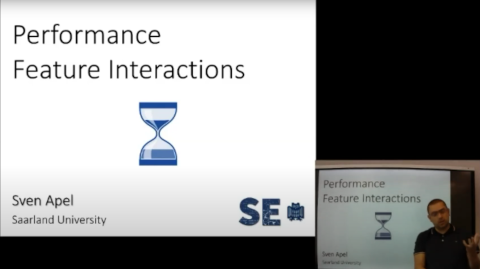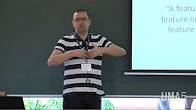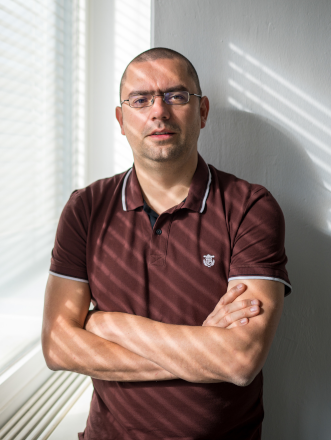

| Sven Apel, Prof. Dr. |
| Professor of Computer Science |
| Chair of Software Engineering |
| Director of the Saarbrücken Graduate School of Computer Science |
| Saarland Informatics Campus |
| Saarland University |
| Saarland University | |
| Chair of Software Engineering | |
| Building E1.1, Room 2.11 | Phone: +49 681 302 57211 |
| 66123 Saarbrücken, Germany | E-Mail: |
| Curriculum vitae, short bio, DBLP, Google Scholar, ACM, ORCiD, Bluesky |
| I have been named an ACM Fellow for developing theories and methods that empower humans to comprehend, construct, and optimize software systems! |
| Our new CACM article "The Silent Scientist: When Software Research Fails to Reach Its Audience" is out! It comes with a very nice video! |
A key vision driving my research is to empower software engineering practice to enter an era of intensive automation. I develop and evaluate methods, tools, and theories for the construction and analysis of efficient, reliable, maintainable, and configurable software systems. In this endeavor, I pay special attention to the human factor and interdisciplinary research questions. In particular, I am interested in:
| Software variability and configuration |
| AI-based program generation and optimization |
| Socio-technical software analysis |
| Empirical and neurophysiological methods |
I apply my research results routinely to real-world software systems and projects from various domains, both from the open-source realm or in collaborations with partners from industry, such as Siemens AG, Bosch Engineering, and Airbus Helicopters.
| ACM Fellow |
| ERC Advanced Grant “Brains On Code” |
| ASE Fellow |
| Hugo Junkers Award for Research and Innovation, awarded by the State of Saxony-Anhalt |
| Appointment to the Young Academy of Europe |
| Heisenberg Professorship of the German Research Foundation |
| Emmy-Noether Fellowship of the German Research Foundation |
| Award of the University of Magdeburg and the Karin-Witte Foundation for the Best Doctoral Dissertation 2007 |
| Software-Engineering Award of the Ernst-Denert Foundation for the Best Doctoral Dissertation 2007 |
| Award of the School of Computer Science, University of Magdeburg for Outstanding Scientific Achievements 2006 |
| Brains On Code (ERC Advanced Grant, 2 500 000 Euro, 2022–2027) |
| CPEC (DFG, TRR 248, Principal Investigator, Projects C2 & E3, 2022–2026) |
| Congruence (DFG, 620 000 Euro, 2020–2024) |
| Pervolution (DFG, 520 000 Euro, 2017–2024) |
| ExaStencils (DFG, SPP 1648, 510 000 Euro, 2013–2018) |
| SafeSPL++ (DFG, Heisenberg Program, 660 000 Euro, 2013–2018) |
| Pythia (DFG, SPP 1593, 700 000 Euro, 2012–2017) |
| FeatureOpt (FFG, 100 000 Euro, 2015–2018) |
| SafeSPL (DFG, Emmy-Noether Program, 1 300 000 Euro, 2010–2015) |
| MapReduceFoundation (DFG, 160 000 Euro, 2011–2013) |
| FeatureFoundation (DFG, 320 000 Euro, 2009–2013) |
(complete list)
 Youssef Abdelsalam, Norman Peitek,
Anna-Maria Maurer, Mariya Toneva, and Sven Apel.
Are
Humans and LLMs Confused by the Same Code? An Empirical Study on
Fixation-Related Potentials and LLM Perplexity.
In Proceedings of the International Conference on Software Engineering
(ICSE). ACM, April 2026.
Acceptance rate: 21% (320 / 1469); to appear.
Youssef Abdelsalam, Norman Peitek,
Anna-Maria Maurer, Mariya Toneva, and Sven Apel.
Are
Humans and LLMs Confused by the Same Code? An Empirical Study on
Fixation-Related Potentials and LLM Perplexity.
In Proceedings of the International Conference on Software Engineering
(ICSE). ACM, April 2026.
Acceptance rate: 21% (320 / 1469); to appear. Johannes Dorn, Stefan Mühlbauer,
Stefan Jahns, Sven Apel, and Norbert Siegmund.
Bayesian
Multi-Level Performance Models for Multi-Factor Variability of Configurable
Software Systems.
In Proceedings of the International Conference on Software Engineering
(ICSE). ACM, April 2026.
Acceptance rate: 21% (320 / 1469); to appear.
Johannes Dorn, Stefan Mühlbauer,
Stefan Jahns, Sven Apel, and Norbert Siegmund.
Bayesian
Multi-Level Performance Models for Multi-Factor Variability of Configurable
Software Systems.
In Proceedings of the International Conference on Software Engineering
(ICSE). ACM, April 2026.
Acceptance rate: 21% (320 / 1469); to appear. Alina Mailach, Janet Siegmund, Sven
Apel, and Norbert Siegmund.
Views
on Internal and External Validity in Empirical Software Engineering: 10 Years
Later and Beyond.
In Proceedings of the International Conference on Software Engineering
(ICSE). ACM, April 2026.
Acceptance rate: 21% (320 / 1469); to appear.
Alina Mailach, Janet Siegmund, Sven
Apel, and Norbert Siegmund.
Views
on Internal and External Validity in Empirical Software Engineering: 10 Years
Later and Beyond.
In Proceedings of the International Conference on Software Engineering
(ICSE). ACM, April 2026.
Acceptance rate: 21% (320 / 1469); to appear. Alisa Welter, Christof Tinnes, and Sven
Apel.
Multi-Location
Software Model Completion.
In Proceedings of the International Conference on Software Engineering
(ICSE). ACM, April 2026.
Acceptance rate: 21% (320 / 1469); to appear.
Alisa Welter, Christof Tinnes, and Sven
Apel.
Multi-Location
Software Model Completion.
In Proceedings of the International Conference on Software Engineering
(ICSE). ACM, April 2026.
Acceptance rate: 21% (320 / 1469); to appear. Annabelle Bergum, Norman Peitek,
Maurice Rekrut, Janet Siegmund, and Sven Apel.
On
the Influence of the Baseline in Neuroimaging Experiments on Program
Comprehension.
ACM Transactions on Software Engineering and Methodology (TOSEM), 35(3):83, February
2026.
Annabelle Bergum, Norman Peitek,
Maurice Rekrut, Janet Siegmund, and Sven Apel.
On
the Influence of the Baseline in Neuroimaging Experiments on Program
Comprehension.
ACM Transactions on Software Engineering and Methodology (TOSEM), 35(3):83, February
2026.- Alisa Welter, Niklas Schneider, Tobias Dick, Kallistos Weis, Christof Tinnes, Marvin Wyrich, and Sven Apel. An Empirical Study of Knowledge Transfer in AI Pair Programming. In Proceedings of the International Conference on Automated Software Engineering (ASE), pages 166–177. IEEE, November 2025. Acceptance rate: 22% (245 / 1136).
- Marvin Wyrich, Christof Tinnes, Sebastian Baltes, and Sven Apel. The Silent Scientist: When Software Research Fails to Reach Its Audience. Communications of the ACM (CACM), 68(11):24–27, October 2025.
- Max Weber, Alina Mailach, Sven Apel, Janet Siegmund, Raimund Dachselt, and Norbert Siegmund. Understanding Debugging as Episodes: A Case Study on Performance Bugs in Configurable Software Systems. In Proceedings of the ACM on Software Engineering, Volume 2, Issue: ACM International Conference on the Foundations of Software Engineering (FSE), pages 1409–1431. ACM, June 2025. Acceptance rate: 22% (135 / 612).
- Roman Haas, Michael Sailer, Mitchell Joblin, Elmar Jürgens, and Sven Apel. Prioritizing Test Gaps by Risk in Industrial Practice: An Automated Approach and Multimethod Study. IEEE Transactions on Software Engineering (TSE), 51(5):1554–1568, May 2025.
- Ruchit Rawal, Victor-Alexandru Pădurean, Sven Apel, Adish Singla, and Mariya Toneva. Hints Help Finding and Fixing Bugs Differently in Python and Text-based Program Representations. In Proceedings of the International Conference on Software Engineering (ICSE), pages 1230–1242. IEEE, April 2025. Acceptance rate: 21% (245 / 1150).
- Christof Tinnes, Alisa Welter, and Sven Apel. Software Model Evolution with Large Language Models: Experiments on Simulated, Public, and Industrial Datasets. In Proceedings of the International Conference on Software Engineering (ICSE), pages 950–962. IEEE, April 2025. Acceptance rate: 21% (245 / 1150).
- Kallistos Weis, Leopoldo Motta Teixeira, Clemens Dubslaff, and Sven Apel. Blackbox Observability of Features and Feature Interactions. In Proceedings of the International Conference on Automated Software Engineering (ASE), pages 1120–1132. ACM, October 2024. Acceptance rate: 27% (155 / 568).
- Roman Haas, Raphael Nömmer, Elmar Jürgens, and Sven Apel. Optimization of Automated and Manual Software Tests in Industrial Practice: A Survey and Historical Analysis. IEEE Transactions on Software Engineering (TSE), 50(8):2005–2020, August 2024.
- Clemens Dubslaff, Kallistos Weis, Christel Baier, and Sven Apel. Feature Causality. Journal of Systems and Software (JSS), 209(3):111915, March 2024.
- Thomas Bock, Nils Alznauer, Mitchell Joblin, and Sven Apel. Automatic Core-Developer Identification on GitHub: A Validation Study. ACM Transactions on Software Engineering and Methodology (TOSEM), 32(6):138, November 2023.
- Florian Sattler, Sebastian Böhm, Philipp Schubert, Norbert Siegmund, and Sven Apel. SEAL: Integrating Program Analysis and Repository Mining. ACM Transactions on Software Engineering and Methodology (TOSEM), 32(5):121, September 2023.
- Mitchell Joblin, Barbara Eckl-Ganser, Thomas Bock, Angelika Schmid, Janet Siegmund, and Sven Apel. Hierarchical and Hybrid Organizational Structures in Open-Source Software Projects: A Longitudinal Study. ACM Transactions on Software Engineering and Methodology (TOSEM), 32(4):86, July 2023.
- Stefan Mühlbauer, Florian Sattler, Christian Kaltenecker, Johannes Dorn, Sven Apel, and Norbert Siegmund. Analyzing the Impact of Workloads on Modeling the Performance of Configurable Software Systems. In Proceedings of the International Conference on Software Engineering (ICSE), pages 2085–2097. IEEE, May 2023. Acceptance rate: 26% (209 / 796).
- Max Weber, Christian Kaltenecker, Florian Sattler, Sven Apel, and Norbert Siegmund. Twins or False Friends? A Study on Energy Consumption and Performance of Configurable Software. In Proceedings of the International Conference on Software Engineering (ICSE), pages 2098–2110. IEEE, May 2023. Acceptance rate: 26% (209 / 796).
- Gustavo do Vale, Claus Hunsen, Eduardo Figueiredo, and Sven Apel. Challenges of Resolving Merge Conflicts: A Mining and Survey Study. IEEE Transactions on Software Engineering (TSE), 48(12):4964–4985, December 2022.
- Norman Peitek, Annabelle Bergum, Maurice Rekrut, Jonas Mucke, Matthias Nadig, Chris Parnin, Janet Siegmund, and Sven Apel. Correlates of Programmer Efficacy and their Link to Experience: A Combined EEG and Eye-Tracking Study. In Proceedings of the ACM Joint European Software Engineering Conference and Symposium on the Foundations of Software Engineering (ESEC/FSE), pages 120–131. ACM, November 2022. Acceptance rate: 22% (99 / 449).
- Georg Seibt, Florian Heck, Guilherme Cavalcanti, Paulo Borba, and Sven Apel. Leveraging Structure in Software Merge: An Empirical Study. IEEE Transactions on Software Engineering (TSE), 48(11):4590–4610, November 2022.
- Wolfgang Mauerer, Mitchell Joblin, Damian Tamburri, Carlos Paradis, Rick Kazman, and Sven Apel. In Search of Socio-Technical Congruence: A Large-Scale Longitudinal Study. IEEE Transactions on Software Engineering (TSE), 48(8):3159–3184, August 2022.
- Mitchell Joblin and Sven Apel. How Do Successful and Failed Projects Differ? A Socio-Technical Analysis. ACM Transactions on Software Engineering and Methodology (TOSEM), 31(4):67, July 2022.
- Sven Apel, Christian Kästner, and Eunsuk Kang. Feature Interactions on Steroids: On the Composition of ML Models. IEEE Software, 39(3):120–124, May 2022.
- Clemens Dubslaff, Kallistos Weis, Christel Baier, and Sven Apel. Causality in Configurable Software Systems. In Proceedings of the International Conference on Software Engineering (ICSE), pages 325–337. ACM, May 2022. Acceptance rate: 26% (197 / 751).
- Miguel Velez, Pooyan Jamshidi, Norbert Siegmund, Sven Apel, and Christian Kästner. On Debugging the Performance of Configurable Software Systems: Developer Needs and Tailored Tool Support. In Proceedings of the International Conference on Software Engineering (ICSE), pages 1571–1583. ACM, May 2022. Acceptance rate: 26% (197 / 751).
- Thomas Bock, Angelika Schmid, and Sven Apel. Measuring and Modeling Group Dynamics in Open-Source Software Development: A Tensor Decomposition Approach. ACM Transactions on Software Engineering and Methodology (TOSEM), 31(2):19, April 2022.
- Norbert Siegmund, Johannes Dorn, Max Weber, Christian Kaltenecker, and Sven Apel. Green Configuration: Can AI Help in Reducing Energy Consumption of Configurable Software Systems?. IEEE Computer, 55(3):74–81, March 2022.
- Christof Tinnes, Timo Kehrer, Mitchell Joblin, Uwe Hohenstein, Andreas Biesdorf, and Sven Apel. Learning Domain-Specific Edit Operations from Model Repositories with Frequent Subgraph Mining. In Proceedings of the International Conference on Automated Software Engineering (ASE), pages 930–942. IEEE, November 2021. Acceptance rate: 20% (82 / 414).
- Aleksandar Dimovski and Sven Apel. Lifted Static Analysis of Dynamic Program Families by Abstract Interpretation. In Proceedings of the European Conference on Object-Oriented Programming (ECOOP), volume 194 of LIPIcs, page 14. Schloss Dagstuhl – Leibniz-Zentrum für Informatik, July 2021. Acceptance rate: 39% (22 / 56).
- Norman Peitek, Sven Apel, Chris Parnin, André Brechmann, and Janet Siegmund. Program Comprehension and Code Complexity Metrics: An fMRI Study. In Proceedings of the International Conference on Software Engineering (ICSE), pages 524–536. IEEE, May 2021. Acceptance rate: 23% (138 / 602); ACM SIGSOFT Distinguished Paper Award.
- Miguel Velez, Pooyan Jamshidi, Norbert Siegmund, Sven Apel, and Christian Kästner. White-Box Analysis over Machine Learning: Modeling Performance of Configurable Systems. In Proceedings of the International Conference on Software Engineering (ICSE), pages 1072–1084. IEEE, May 2021. Acceptance rate: 23% (138 / 602).
- Max Weber, Sven Apel, and Norbert Siegmund. White-Box Performance-Influence Models: A Profiling and Learning Approach. In Proceedings of the International Conference on Software Engineering (ICSE), pages 1059–1071. IEEE, May 2021. Acceptance rate: 23% (138 / 602).
- Thiago Castro, Leopoldo Teixeira, Vander Alves, Sven Apel, Maxime Cordy, and Rohit Gheyi. A Formal Framework of Software Product Line Analyses. ACM Transactions on Software Engineering and Methodology (TOSEM), 30(3):34, April 2021.
- Leonardo Passos, Rodrigo Queiroz, Mukelabai Mukelabai, Thorsten Berger, Sven Apel, Krzysztof Czarnecki, and Jesus Alejandro Padilla. A Study of Feature Scattering in the Linux Kernel. IEEE Transactions on Software Engineering (TSE), 47(1):146–164, January 2021.
- Janet Siegmund, Norman Peitek, Sven Apel, and Norbert Siegmund. Mastering Variation in Human Studies: The Role of Aggregation. ACM Transactions on Software Engineering and Methodology (TOSEM), 30(1):2, January 2021.
- Dan Gopstein, Anne-Laure Fayard, Sven Apel, and Justin Cappos. Thinking Aloud About Confusing Code: A Qualitative Investigation of Program Comprehension and Atoms of Confusion. In Proceedings of the ACM Joint European Software Engineering Conference and Symposium on the Foundations of Software Engineering (ESEC/FSE), pages 605–616. ACM, November 2020. Acceptance rate: 28% (101 / 360).
- Johannes Dorn, Sven Apel, and Norbert Siegmund. Mastering Uncertainty in Performance Estimations of Configurable Software Systems. In Proceedings of the International Conference on Automated Software Engineering (ASE), pages 684–696. ACM, September 2020. Acceptance rate: 23% (93 / 408).
- Stefan Mühlbauer, Sven Apel, and Norbert Siegmund. Identifying Software Performance Changes Across Variants and Versions. In Proceedings of the International Conference on Automated Software Engineering (ASE), pages 611–622. ACM, September 2020. Acceptance rate: 23% (93 / 408).
- Christian Kaltenecker, Alexander Grebhahn, Norbert Siegmund, and Sven Apel. The Interplay of Sampling and Machine Learning for Software Performance Prediction. IEEE Software, 37(4):58–66, July 2020.
- Vivek Nair, Zhe Yu, Tim Menzies, Norbert Siegmund, and Sven Apel. Finding Faster Configurations using FLASH. IEEE Transactions on Software Engineering (TSE), 46(7):794–811, July 2020.
- Janet Siegmund, Norman Peitek, André Brechmann, Chris Parnin, and Sven Apel. Studying Programming in the Neuroage: Just a Crazy Idea?. Communications of the ACM (CACM), 63(6):30–34, June 2020.
- Norman Peitek, Janet Siegmund, Sven Apel, Christian Kästner, Chris Parnin, Anja Bethmann, Thomas Leich, Gunter Saake, and André Brechmann. A Look into Programmers' Heads. IEEE Transactions on Software Engineering (TSE), 46(4):442–462, April 2020.
- Roman Haas, Rainer Niedermayer, Tobias Roehm, and Sven Apel. Is Static Analysis Able to Identify Unnecessary Source Code?. ACM Transactions on Software Engineering and Methodology (TOSEM), 29(1):6, March 2020.
- Guilherme Cavalcanti, Paulo Borba, Georg Seibt, and Sven Apel. The Impact of Structure on Software Merging: Semistructured versus Structured Merge. In Proceedings of the International Conference on Automated Software Engineering (ASE), pages 1002–1013. IEEE, November 2019. Acceptance rate (full papers): 25% (93 / 373).
- Stefan Mühlbauer, Sven Apel, and Norbert Siegmund. Accurate Modeling of Performance Histories for Evolving Software Systems. In Proceedings of the International Conference on Automated Software Engineering (ASE), pages 640–652. IEEE, November 2019. Acceptance rate (full papers): 25% (93 / 373).
- Christian Kaltenecker, Alexander Grebhahn, Norbert Siegmund, Jianmei Guo, and Sven Apel. Distance-Based Sampling of Software Configuration Spaces. In Proceedings of the International Conference on Software Engineering (ICSE), pages 1084–1094. IEEE, May 2019. Acceptance rate: 21% (109 / 529).
- Alexander von Rhein, Jörg Liebig, Andreas Janker, Christian Kästner, and Sven Apel. Variability-Aware Static Analysis at Scale: An Empirical Study. ACM Transactions on Software Engineering and Methodology (TOSEM), 27(4):18, November 2018.
- Claire Le Goues, Yuriy Brun, Sven Apel, Emery Berger, Sarfrad Khurshid, and Yannis Smaragdakis. Effectiveness of Anonymization in Double-Blind Review. Communications of the ACM (CACM), 61(6):30–33, May 2018.
- Flavio Medeiros, Marcio Ribeiro, Rohit Gheyi, Sven Apel, Christian Kästner, Bruno Ferreira, Luiz Carvalho, and Baldoino Fonseca. Discipline Matters: Refactoring of Preprocessor Directives in the #ifdef Hell. IEEE Transactions on Software Engineering (TSE), 44(5):453–469, May 2018.
- Olaf Leßenich, Sven Apel, Christian Kästner, Georg Seibt, and Janet Siegmund. Renaming and Shifted Code in Structured Merging: Looking Ahead for Precision and Performance. In Proceedings of the International Conference on Automated Software Engineering (ASE), pages 543–553. IEEE, November 2017. Acceptance rate (full papers): 21% (67 / 322).
- Vivek Nair, Tim Menzies, Norbert Siegmund, and Sven Apel. Using Bad Learners to find Good Configurations. In Proceedings of the European Software Engineering Conference and the ACM SIGSOFT International Symposium on the Foundations of Software Engineering (ESEC/FSE), pages 257–267. ACM, September 2017. Acceptance rate: 24% (72 / 295).
- Janet Siegmund, Norman Peitek, Chris Parnin, Sven Apel, Johannes Hofmeister, Christian Kästner, Andrew Begel, Anja Bethmann, and André Brechmann. Measuring Neural Efficiency of Program Comprehension. In Proceedings of the European Software Engineering Conference and the ACM SIGSOFT International Symposium on the Foundations of Software Engineering (ESEC/FSE), pages 140–150. ACM, September 2017. Acceptance rate: 24% (72 / 295).
- Norbert Siegmund, Stefan Sobernig, and Sven Apel. Attributed Variability Models: Outside the Comfort Zone. In Proceedings of the European Software Engineering Conference and the ACM SIGSOFT International Symposium on the Foundations of Software Engineering (ESEC/FSE), pages 268–278. ACM, September 2017. Acceptance rate: 24% (72 / 295).
- Jörg Liebig, Sven Apel, Andreas Janker, Florian Garbe, and Sebastian Oster. Handling Static Configurability in Refactoring Engines. IEEE Computer, 50(7):44–53, July 2017.
- Mitchell Joblin, Sven Apel, Claus Hunsen, and Wolfgang Mauerer. Classifying Developers into Core and Peripheral: An Empirical Study on Count and Network Metrics. In Proceedings of the International Conference on Software Engineering (ICSE), pages 164–174. IEEE, May 2017. Acceptance rate: 16% (68 / 415).
- Sven Apel, Dirk Beyer, Vitaly Mordan, Vadim Mutilin, and Andreas Stahlbauer. On-The-Fly Decomposition of Specifications in Software Model Checking. In Proceedings of the ACM SIGSOFT International Symposium on the Foundations of Software Engineering (FSE), pages 349–361. ACM, November 2016. Acceptance rate: 27% (74 / 273).
- Flávio Medeiros, Christian Kästner, Márcio Ribeiro, Rohit Gheyi, and Sven Apel. A Comparison of 10 Sampling Algorithms for Configurable Systems. In Proceedings of the International Conference on Software Engineering (ICSE), pages 643–654. ACM, May 2016. Acceptance rate: 19% (101 / 530).
- Atri Sarkar, Jianmei Guo, Norbert Siegmund, Sven Apel, and Krzysztof Czarnecki. Cost-Efficient Sampling for Performance Prediction of Configurable Systems. In Proceedings of the International Conference on Automated Software Engineering (ASE), pages 342–352. IEEE, November 2015. Acceptance rate (full papers): 21% (60 / 289).
- Andreas Wölfl, Norbert Siegmund, Sven Apel, Harald Kosch, Johann Krautlager, and Guillermo Weber-Urbina. Generating Qualifiable Avionics Software: An Experience Report. In Proceedings of the International Conference on Automated Software Engineering (ASE), pages 726–736. IEEE, November 2015. Acceptance rate (full papers): 21% (60 / 289).
- Norbert Siegmund, Alexander Grebhahn, Sven Apel, and Christian Kästner. Performance-Influence Models for Highly Configurable Systems. In Proceedings of the European Software Engineering Conference and the ACM SIGSOFT International Symposium on the Foundations of Software Engineering (ESEC/FSE), pages 284–294. ACM, August 2015. Acceptance rate: 25% (74 / 291).
- Mitchell Joblin, Wolfgang Mauerer, Sven Apel, Janet Siegmund, and Dirk Riehle. From Developer Networks to Verified Communities: A Fine-Grained Approach. In Proceedings of the International Conference on Software Engineering (ICSE), pages 563–573. IEEE, May 2015. Acceptance rate: 19% (84 / 452).
- Jörg Liebig, Andreas Janker, Florian Garbe, Sven Apel, and Christian Lengauer. Morpheus: Variability-Aware Refactoring in the Wild. In Proceedings of the International Conference on Software Engineering (ICSE), pages 380–391. IEEE, May 2015. Acceptance rate: 19% (84 / 452).
- Alexander von Rhein, Alexander Grebhahn, Sven Apel, Norbert Siegmund, Dirk Beyer, and Thorsten Berger. Presence-Condition Simplification in Highly Configurable Systems. In Proceedings of the International Conference on Software Engineering (ICSE), pages 178–188. IEEE, May 2015. Acceptance rate: 19% (84 / 452).
- Janet Siegmund, Norbert Siegmund, and Sven Apel. Views on Internal and External Validity in Empirical Software Engineering. In Proceedings of the International Conference on Software Engineering (ICSE), pages 9–19. IEEE, May 2015. Acceptance rate: 19% (84 / 452); ACM SIGSOFT Distinguished Paper Award.
- Janet Siegmund, Christian Kästner, Jörg Liebig, Sven Apel, and Stefan Hanenberg. Measuring and Modeling Programming Experience. Empirical Software Engineering (EMSE), 19(5):1299–1334, October 2014. ICPC Most Influential Paper Award 2022.
- Jianmei Guo, Edward Zulkoski, Rafael Olaechea, Derek Rayside, Krzysztof Czarnecki, Sven Apel, and Joanne Atlee. Scaling Exact Multi-Objective Combinatorial Optimization by Parallelization. In Proceedings of the International Conference on Automated Software Engineering (ASE), pages 409–420. ACM, September 2014. Acceptance rate: 20% (55 / 276).
- Thomas Thüm, Sven Apel, Christian Kästner, Ina Schaefer, and Gunter Saake. A Classification and Survey of Analysis Strategies for Software Product Lines. ACM Computing Surveys (CSUR), 47(1):6, June 2014.
- Janet Siegmund, Christian Kästner, Sven Apel, Chris Parnin, Anja Bethmann, Thomas Leich, Gunter Saake, and André Brechmann. Understanding Understanding Source Code with Functional Magnetic Resonance Imaging. In Proceedings of the International Conference on Software Engineering (ICSE), pages 378–389. ACM, May 2014. Acceptance rate: 20% (99 / 495).
- Jianmei Guo, Krzysztof Czarnecki, Sven Apel, Norbert Siegmund, and Andrzej Wasowski. Variability-Aware Performance Prediction: A Statistical Learning Approach. In Proceedings of the International Conference on Automated Software Engineering (ASE), pages 301–311. IEEE, November 2013. Acceptance rate (full papers): 16% (51 / 317).
- Andreas Simbürger, Sven Apel, Armin Größlinger, and Christian Lengauer. The Potential of Polyhedral Optimization: An Empirical Study. In Proceedings of the International Conference on Automated Software Engineering (ASE), pages 508–518. IEEE, November 2013. Acceptance rate (full papers): 16% (51 / 317).
- Sven Apel, Don Batory, Christian Kästner, and Gunter Saake. Feature-Oriented Software Product Lines: Concepts and Implementation. Springer, October 2013. 315 pages, ISBN 978-3-642-37520-0.
- Sandro Schulze, Jörg Liebig, Janet Siegmund, and Sven Apel. Does the Discipline of Preprocessor Annotations Matter? A Controlled Experiment. In Proceedings of the International Conference on Generative Programming: Concepts & Experiences (GPCE), pages 65–74. ACM, October 2013. Acceptance rate (full papers): 30% (17 / 57). GPCE Most Influential Paper Award 2023.
- Jörg Liebig, Alexander von Rhein, Christian Kästner, Sven Apel, Jens Dörre, and Christian Lengauer. Scalable Analysis of Variable Software. In Proceedings of the European Software Engineering Conference and the ACM SIGSOFT International Symposium on the Foundations of Software Engineering (ESEC/FSE), pages 81–91. ACM, August 2013. Acceptance rate: 20% (51 / 251).
- Sven Apel, Alexander von Rhein, Philipp Wendler, Armin Größlinger, and Dirk Beyer. Strategies for Product-Line Verification: Case Studies and Experiments. In Proceedings of the International Conference on Software Engineering (ICSE), pages 482–491. IEEE, May 2013. Acceptance rate: 19% (85 / 461).
- Sven Apel, Christian Kästner, and Christian Lengauer. Language-Independent and Automated Software Composition: The FeatureHouse Experience. IEEE Transactions on Software Engineering (TSE), 39(1):63–79, January 2013.
- Sven Apel, Olaf Leßenich, and Christian Lengauer. Structured Merge with Auto-Tuning: Balancing Precision and Performance. In Proceedings of the International Conference on Automated Software Engineering (ASE), pages 120–129. ACM, September 2012. Acceptance rate: 13% (21/167).
- Christian Kästner, Sven Apel, Thomas Thüm, and Gunter Saake. Type Checking Annotation-Based Product Lines. ACM Transactions on Software Engineering and Methodology (TOSEM), 21(3):14, June 2012.
- Norbert Siegmund, Sergiy Kolesnikov, Christian Kästner, Sven Apel, Don Batory, Marko Rosenmüller, and Gunter Saake. Predicting Performance via Automated Feature-Interaction Detection. In Proceedings of the International Conference on Software Engineering (ICSE), pages 167–177. IEEE, June 2012. Acceptance rate: 21% (87 / 408).
- Sven Apel, Jörg Liebig, Benjamin Brandl, Christian Lengauer, and Christian Kästner. Semistructured Merge: Rethinking Merge in Revision Control Systems. In Proceedings of the European Software Engineering Conference and the ACM SIGSOFT International Symposium on the Foundations of Software Engineering (ESEC/FSE), pages 190–200. ACM, September 2011. Acceptance rate: 17% (34 / 203).
- Sven Apel and Dirk Beyer. Feature Cohesion in Software Product Lines: An Exploratory Study. In Proceedings of the International Conference on Software Engineering (ICSE), pages 421–430. ACM, May 2011. Acceptance rate: 14% (62 / 441).
- Friedrich Steimann, Thomas Pawlitzki, Sven Apel, and Christian Kästner. Types and Modularity for Implicit Invocation with Implicit Announcement. ACM Transactions on Software Engineering and Methodology (TOSEM), 20(1):1, June 2010.
- Sven Apel and DeLesley Hutchins. A Calculus for Uniform Feature Composition. ACM Transactions on Programming Languages and Systems (TOPLAS), 32(5):19, May 2010.
- Jörg Liebig, Sven Apel, Christian Lengauer, Christian Kästner, and Michael Schulze. An Analysis of the Variability in Forty Preprocessor-Based Software Product Lines. In Proceedings of the International Conference on Software Engineering (ICSE), pages 105–114. ACM, May 2010. Acceptance rate: 14% (52 / 380).
- Sven Apel, Christian Kästner, and Christian Lengauer. FeatureHouse: Language-Independent, Automated Software Composition. In Proceedings of the International Conference on Software Engineering (ICSE), pages 221–231. IEEE, May 2009. Acceptance rate: 12% (50 / 405).
- Christian Kästner and Sven Apel. Type-checking Software Product Lines – A Formal Approach. In Proceedings of the International Conference on Automated Software Engineering (ASE), pages 258–267. IEEE, September 2008. Acceptance rate: 12% (30 / 280).
- Christian Kästner, Sven Apel, and Martin Kuhlemann. Granularity in Software Product Lines. In Proceedings of the International Conference on Software Engineering (ICSE), pages 311–320. ACM, May 2008. Acceptance rate: 15% (56 / 371); SPLC Most Influential Paper Award 2018.
- Sven Apel, Thomas Leich, and Gunter Saake. Aspectual Feature Modules. IEEE Transactions on Software Engineering (TSE), 34(2):162–180, April 2008.
- Sven Apel, Thomas Leich, and Gunter Saake. Aspectual Mixin Layers: Aspects and Features in Concert. In Proceedings of the International Conference on Software Engineering (ICSE), pages 122–131. ACM, May 2006. Acceptance rate: 9% (36 / 395).
Copyright Notice: This material is presented to ensure timely dissemination of scholarly and technical work. Copyright and all rights therein are retained by authors or by other copyright holders. All persons copying this information are expected to adhere to the terms and constraints invoked by each author's copyright. In most cases, these publications may not be reposted without the explicit permission of the copyright holder.



